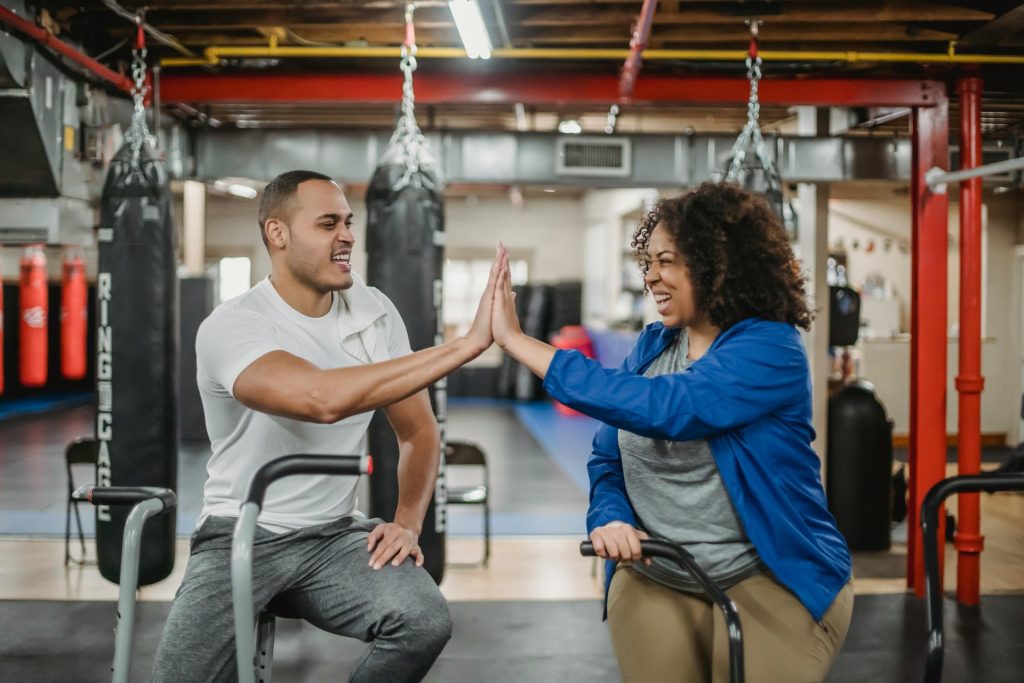Achieving Your Fitness Goals: A Comprehensive Guide to Tailored Workouts
Achieving your fitness goals is more than just a phase; it is a lifelong journey that requires thoughtful planning and execution. Understanding which types of workouts align with your specific objectives is crucial to creating a successful fitness regimen. This comprehensive guide aims to explore appropriate workout strategies tailored for different goals, providing actionable tips and examples to help you design a personalized workout plan.
Setting Your Fitness Goals
Before you start planning your workout routine, it’s essential to set clear and specific fitness goals. Identifying your primary objectives will help you tailor your workouts effectively. Here are some common fitness goals:
| Goal | Description |
|---|---|
| Weight Loss | Reduction of body weight through fat loss. |
| Muscle Gain | Increase in muscle mass and strength. |
| Improved Endurance | Enhanced stamina for prolonged physical activities. |
| Increased Flexibility | Improved range of motion and flexibility. |
Action Steps:
- Reflect on your current health status and fitness level.
- Write down at least one short-term and one long-term goal.
- Use the SMART criteria (Specific, Measurable, Achievable, Relevant, and Time-bound) to refine your goals.
Workouts for Specific Goals
1. Weight Loss
If your primary goal is to lose weight, a combination of cardiovascular exercises and strength training is crucial. Here’s how:
-
Cardio Workouts: Engage in activities such as running, cycling, or swimming for at least 150 minutes weekly. High-Intensity Interval Training (HIIT) is especially effective for burning calories in a shorter time.
-
Strength Training: Incorporate strength training at least twice a week. Focus on major muscle groups using compound movements like squats, lunges, and push-ups. Strength training aids in building lean muscle mass, which boosts metabolism.
Sample Weekly Schedule:
| Day | Workout Type |
|---|---|
| Monday | HIIT |
| Tuesday | Strength Training |
| Wednesday | Low-Intensity Cardio (walking) |
| Thursday | Strength Training |
| Friday | HIIT |
| Saturday | Fun Activity (hiking, dancing) |
| Sunday | Rest Day |
2. Muscle Gain
For muscle gain, focusing on strength training with a principle called progressive overload is key. By gradually increasing weight, reps, or sets, you continually challenge your muscles.
Effective Strength Training Principles:
- Compound Exercises: Incorporate exercises like squats, deadlifts, and bench presses to leverage multiple muscle groups.
- Rep Range: Aim for 6-12 reps per set for hypertrophy (muscle building).
Indicators of progress can include tracking max lifts or body measurements.
3. Improved Endurance
To improve your endurance, incorporate aerobic exercises into your routine and gradually increase their intensity:
- Activities: Engage in activities such as running, cycling, or swimming for at least 30 minutes on most days.
- Interval Training: Alternate between high-intensity bursts and recovery periods for increased stamina. For example, sprint for 30 seconds, then jog for 1-2 minutes.
Sample Endurance Routine:
| Day | Workout Type |
|---|---|
| Monday | Steady-State Run (45 mins) |
| Tuesday | Rest Day |
| Wednesday | Interval Training (20 mins) |
| Thursday | Cross-Training (swimming) |
| Friday | Long Run (60 mins) |
| Saturday | Active Recovery (yoga) |
| Sunday | Flexibility Training |
4. Flexibility and Mobility
Incorporating flexibility and mobility exercises into your routine is vital for maintaining joint health and reducing injury risk.
- Activities: Include yoga, Pilates, or dedicated stretching sessions 2-3 times a week.
- Mobility Routine: Focus on dynamic stretching before workouts and static stretching after workouts.
Sample Flexibility Routine:
| Day | Activity |
|---|---|
| Monday | Yoga Class |
| Wednesday | 20-Minute Stretching Routine |
| Friday | Pilates Session |
| Sunday | Active Recovery with Stretching |
Creating a Balanced Workout Plan
To ensure your workout regimen is balanced and effective, consider the following tips:
1. Combine Different Workout Types
Combining cardio, strength training, and flexibility exercises can lead to comprehensive fitness. Here are some options:
- Cardio: Dance classes, cycling, running.
- Strength: Bodyweight exercises, resistance bands, free weights.
- Flexibility: Stretching routines, yoga sessions.
2. Set Realistic Timelines
Adapt your workout frequency and intensity based on your goals. For instance, if you’re training for a 5k:
- Weeks 1-2: Focus on running 1.5 miles three times a week at a comfortable pace.
- Weeks 3-4: Gradually increase your distance to 2.5 miles.
- Weeks 5-6: Incorporate speed work and hill runs.
3. Listen to Your Body
Understanding your body’s signals is vital. Here are some tips:
- If you experience pain beyond normal soreness, consult a fitness or health professional.
- Ensure rest days are part of your routine to enable muscle recovery.
4. Stay Accountable
Consider working with a coach or joining a fitness community. Surrounding yourself with supportive individuals keeps motivation high.
Bonus Resources:
– Join our Flip My Fitness community for tailored coaching! Sign up today to unlock personalized workout plans and nutritional advice.
– Check out our Favorites Section for quick-start guides and resources to jump into your fitness journey!
Conclusion
In conclusion, understanding which types of workouts are suitable for your specific fitness goals is vital for creating a successful workout plan. By incorporating a variety of exercises tailored to your objectives, you can achieve optimal results and maintain long-term fitness success. Remember that consistency, dedication, and a strategic approach are keys to reaching your fitness aspirations.
With the right mindset and determination, you can design a personalized workout plan that helps you become the best version of yourself. So take action today, join our community, or explore our favorites section for a comprehensive start to your fitness journey!
